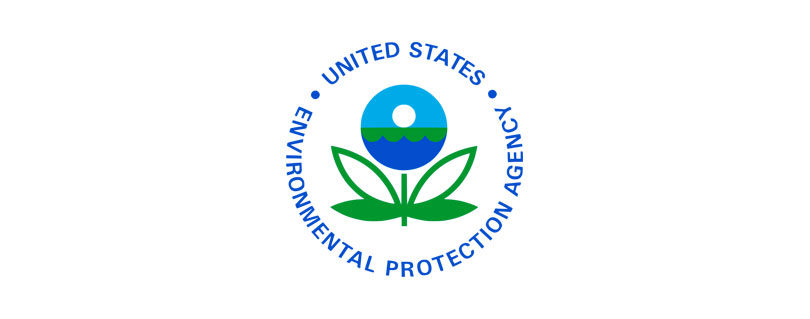Biden-Harris Administration Proposes Reforms to New Chemical Review Process to Protect Public Health, Promote Efficiency and Consistency
Publilshed by the U.S. Environmental Protection Agency (EPA)
WASHINGTON — Today, the U.S. Environmental Protection Agency (EPA) proposed amendments to the regulations that govern the Agency’s review of new chemicals under the Toxic Substances Control Act (TSCA) to improve efficiency and align with the 2016 bipartisan TSCA amendments under the Frank R. Lautenberg Chemical Safety for the 21st Century Act. Under TSCA, EPA plays an important gatekeeper role by reviewing the potential risks of new chemicals before they can enter U.S. commerce and, when necessary, putting safeguards in place to protect human health and the environment. Today’s proposal also eliminates eligibility for exemptions from the full safety review process for new per- and polyfluoroalkyl substances (PFAS) and other persistent, bioaccumulative, and toxic (PBT) chemicals.
“Congress expanded EPA’s authority to protect communities from dangerous chemicals, and it’s well past time to modernize the regulations that govern new chemicals, increase efficiency to foster innovation, and strengthen our commitment to ensuring that new chemicals can be used safely before they are allowed into commerce,” said Assistant Administrator for the Office of Chemical Safety and Pollution Prevention Michal Freedhoff.
These reforms advance the Biden-Harris Administration’s plan to protect Americans from harmful PFAS exposure. As part of this government-wide effort, Administrator Michael Regan launched EPA’s PFAS Roadmap, a comprehensive strategy that outlines concrete actions over the next three years, including steps to control PFAS at its sources, hold polluters accountable, ensure science-based decision making, and address the impacts on disadvantaged and disproportionately impacted communities.
The proposed amendments released today includes the following provisions:
Align federal regulations with existing law
Under TSCA, manufacturers (including importers) and processors must submit premanufacture notices (PMNs) for new chemical substances, significant new use notices (SNUNs) for significant new uses, and microbial commercial activity notices (MCANs) for microorganisms with commercial applications. Prior to the 2016 amendments, EPA only made formal safety determinations on approximately 20% of new chemical submissions. Now, the new law requires EPA to make one of five possible safety determinations on 100% of new chemical submissions before they can enter the market.
Today’s proposal would amend the regulations by specifying that EPA must make one of the five specified statutory determinations on each PMN, SNUN, and MCAN received before the submitter may commence manufacturing or processing the new chemical substance. It would also update the regulations to list the actions required in association with each of those determinations. These amendments would align the regulations with TSCA section 5 requirements to reflect the full extent of new chemical reviews, providing consistency and transparency in new chemical review processes.
Eliminate certain exemptions for PFAS and PBTs
Existing regulations allow EPA to grant exemptions from a complete PMN safety review for the manufacturing of chemicals with low production quantities, environmental releases or human exposures. Under this process, persons who wish to manufacture new chemicals can submit a low volume exemption (LVE) or low release and exposure exemption (LoREX) prior to the commencement of manufacture, allowing the chemicals to undergo a less robust 30-day review instead of the typical 90-day reviews for PMNs.
In April 2021, EPA announced new PFAS would be unlikely to qualify for these exemptions given the complexity of PFAS chemistry, potential health effects and their longevity and persistence in the environment. As the Agency explained, it is challenging to complete a review of PFAS exemption submissions in the 30 days the regulations allow. Today’s proposed rule would make new PFAS categorically ineligible for LVE or LoREX exemptions, ensuring new PFAS would go through the full robust safety review process before they can enter commerce, consistent with the Biden-Harris Administration’s commitment to addressing the impacts of PFAS, as expressed in EPA’s 2021-2024 PFAS Strategic Roadmap.
The amendments would also ensure that all PBT chemicals are also ineligible for these exemptions, codifying EPA’s decades-long policy for these substances.
Improve the efficiency of EPA’s review of new chemical submissions to foster innovation
The proposed rule also would make several other changes to add efficiencies to the new chemicals review process, including clarifying the level of detail needed in new chemical notices and amending the procedures for EPA’s review of notices that have errors or are incomplete. Under the proposed rule, EPA would change its longstanding practice of accepting amended notices that contain information that was known or reasonably ascertainable at the time of the original submission. Instead, EPA would exercise its authority under TSCA to declare submissions incomplete and restart the review period, saving time and resources that could instead be spent reviewing complete submissions more quickly.
It would also assist industry’s efforts to provide complete submissions for review through a new set of information “pick-lists” incorporated into the application form located in EPA’s Central Data Exchange. When submitters provide all the necessary information, EPA can assess risk more quickly and accurately. The proposals supplement EPA’s TSCA New Chemical Engineering Initiative, an outreach effort launched in 2022 that helps stakeholders understand how to avoid providing incomplete data in their new chemicals submissions. The amendments also include a streamlined process for submitters to request suspension of the review process for 30 days via oral or written request if more time is needed by the submitter.
Upon publication of the Federal Register notice, EPA will accept public comments on the proposal for 60 days via docket EPA-HQ-OPPT-2022-0902 at www.regulations.gov.
Read a prepublication version of the rule.
Learn more about EPA’s reviews of new chemicals under TSCA.
Read the full article at: https://www.epa.gov/newsreleases/biden-harris-administration-proposes-reforms-new-chemical-review-process-protect


